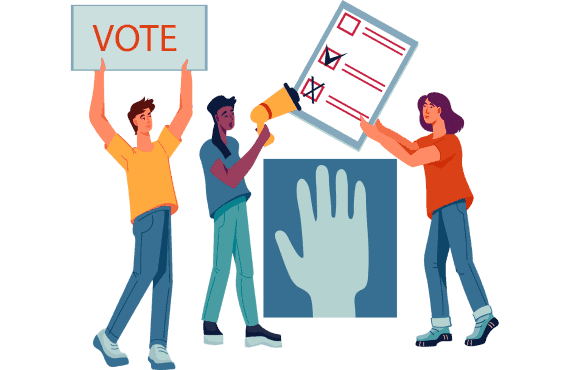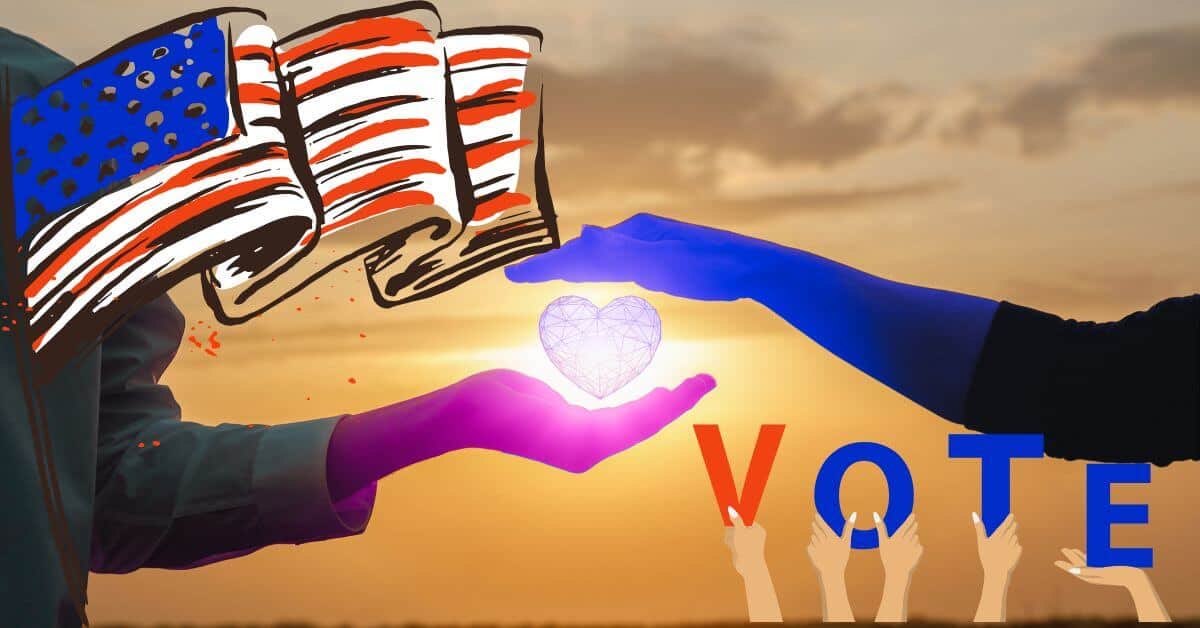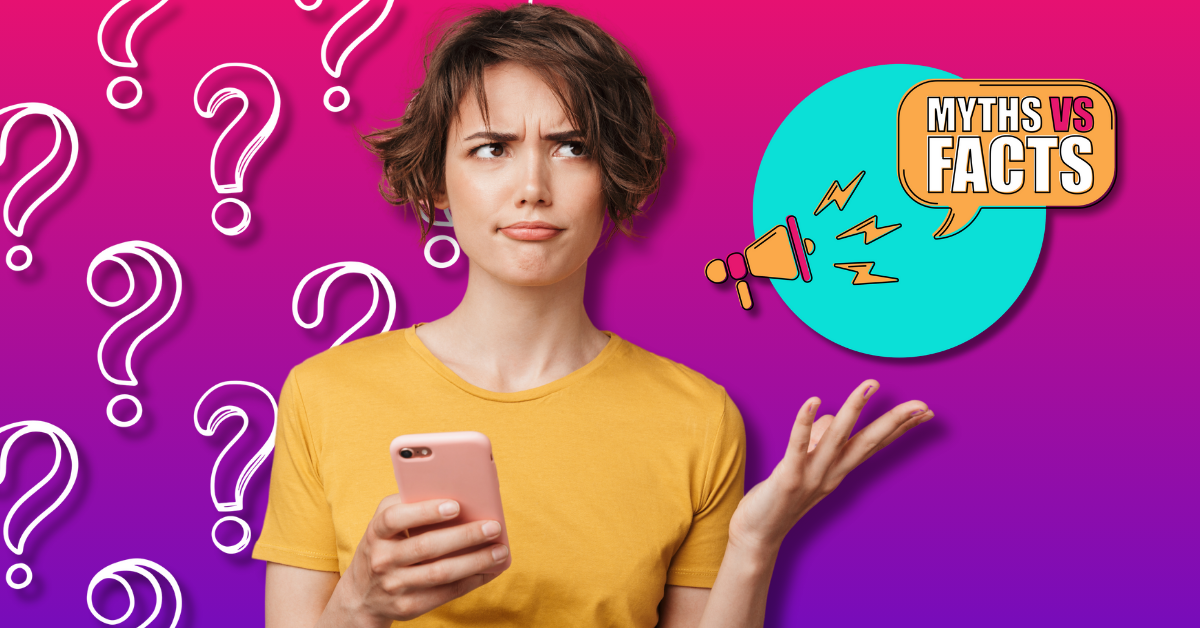Politics and dating–two things you wouldn’t usually think of go hand in hand. But just like oil and water, they can sometimes mix unexpectedly. You might think you have found the perfect match, only to discover that their political views are as compatible as oil and vinegar. So, buckle up and get ready for a ride as we explore how politics can affect the dating world in ways you never imagined.
Maybe you’re dating someone who shares your beliefs, or perhaps you’ve just met someone who is on the complete opposite side of the spectrum; either way, there are benefits and downsides to both. Let’s explore these tips and tricks to help you maneuver how politics filters into your relationship.
Shared Values of the Same Side
It’s officially happened. You’re dating your political match in every possible way. Gone are the days of defending why you vote a specific way. Now you and your partner can sit back, watch the same news show, and be honest about how you voted at the polls. But just because you two see things the same way doesn’t mean it’s always the best way to experience a relationship. Let’s explore the benefits and the downsides of dating someone who views the world through the same political lens you do.
Shared Values
Shared values are a critical component of any successful and fulfilling bond. If you share the same profession, for example, you’re more likely to understand the stress your partner is going through. Similarly, politics can help partners identify shared values and priorities.
Perhaps both of you share a commitment to social justice. In your free time, you participate in advocacy projects, attend protests, or cherish activism. Common values can lead to shared habits, hobbies, and experiences.
Or maybe both of you see politics as a waste of time, something not to be bothered with. Perhaps neither of you votes because you both believe that politicians are corrupt. If this is your stance, you probably won’t get along well with someone who desires to be president someday. Shared values around politics lead to common interests–and usually fewer disagreements.
Political beliefs can also provide a framework for how partners approach meaningful issues and decisions in their relationship. If you both care about progressive policies, then you’re more likely to approach topics like healthcare, education, and income inequality with a similar perspective–and these are issues that could directly affect your day-to-day life.

Or perhaps you and your partner lean more conservatively politically. Maybe you’re both Christian and like spending your Sundays at church and your weekends expressing your passions on issues that are important to you.
Studies have found that when partners have similar political beliefs, common beliefs will overlap in other areas, such as values, attitudes, and lifestyle preferences.
A study published by the Pew Research Center discovered that people who identify with a particular political party are more likely to share similar views on issues like gun control, climate change, and social welfare policies. If you’re anti-gun, it’s likely you won’t do well with someone who collects them.
But what if you’ve fallen madly in love with someone who sees the world very differently than you? This doesn’t have to be a deal breaker, especially if you can master the art of communication.
Opposites and Intellectual Stimulation
Let’s say you and your partner differ on every single topic imaginable. Now what? By discussing political issues and sharing different perspectives, partners can challenge each other’s assumptions, broaden their understanding of important issues, and engage in stimulating debates and discussions. It’s an opportunity to step outside your comfort zone and learn something new. You can also cultivate empathy when you listen to someone you disagree with.
By challenging each other’s assumptions and broadening your understanding of important issues, you can develop personal growth in your own life and worldview and create a relationship that is more than just an echo chamber repeating back your beliefs.
How to Navigate Political Discussions with Your Partner
Navigating political discussions in dating can be challenging, especially if you and your partner have different political beliefs. And even if you and your partner vote the same, there’s a high chance you still might have differing views on everything one hundred percent of the time. So how do you stand by your beliefs while continuing to foster a love for the person you want to share your life with?

Communication and Understanding
Political beliefs are often shaped by personal experiences and values, and partners must communicate openly and respectfully about their views and experiences, even if they’re on the same side.
Partners should strive to understand each other’s perspectives and experiences without judgment or criticism. By practicing active listening, you can build a stronger and more supportive relationship. And if there’s something you’re unsure about–then ask questions!

Set Ground Rules
Before you start a political conversation, agree that you’ll both listen to each other’s perspectives without interrupting. Political discussions can be emotionally charged, and it can be easy to become defensive or attack the other person personally. Avoid personal attacks and stay focused on the issues rather than your differing personalities; otherwise, you risk derailing the conversation and damaging the relationship.
Be mindful of your tone and body language during political discussions. Keep your arms uncrossed, your voice low, and give your partner eye contact to show them you’re listening. By using a calm and respectful tone and maintaining open and non-defensive body language, partners can show that they are willing to engage in constructive dialogue.

Choose the Right Time and Place
It’s important to choose the right time and place to have political discussions, especially if you disagree on a topic. Avoid having these conversations in public places or when you are angry or emotional. If either partner is angry or upset, postpone the discussion until emotions have cooled.
Consider the context of the conversation. If a particular political issue is in the news or there is an upcoming election, it may be more appropriate to have the conversation sooner rather than later. If something arises that you don’t really care about, ask yourself if it’s worth bringing up to your partner if you know they disagree with it.

Be Open-Minded and Respectful
Avoid dismissing your partner’s perspective, even if you disagree with it. You may never fully understand or agree with their point of view, but you can still have constructive dialogue, even if they challenge your beliefs.
Use “I” statements instead of “you” statements. Instead of saying: “You’re wrong about that,” try saying: “I see it differently.” This approach allows you to take responsibility without blaming your partner. You can express your point of view without dismissing theirs.

Focus on Common Ground
While you and your partner’s political beliefs may differ, if you can identify and discuss shared values, you can create common ground and likely cultivate a more productive conversation.
Pinpoint what’s important to you before you start talking. This can include issues such as healthcare, education, or social justice. Once shared values have been identified, you can both focus on finding solutions that align with those values.
Remember that this doesn’t necessarily mean that both of you will agree on every issue. Still, by finding similarities in your values, you can redirect your conversations into productive, respectful, and solution-oriented places.

Know When to Disengage
Your cheeks are getting flushed, your heart is racing, and you’re five seconds away from throwing that insult you saw in that movie about small sizes of things back in your partner’s face. Don’t do it. Just don’t. You’ll regret it, trust me. It’s okay to take a break and cool off before continuing.
Sometimes, it’s more productive to agree to disagree instead of repeating the same points to an unproductive end. It doesn’t mean you’re giving up on the conversation altogether. It means that you’ll revisit the issue at a later time and find a new approach that is more productive and respectful.
What to Consider Before Committing
Personal Beliefs vs. Compatibility
Some people prioritize finding a partner who shares their political beliefs, while others are more open to dating someone with different views. Before committing to a new partner, ask yourself what matters to you in a relationship.
Consider the importance of politics in your life. Are you able to date someone with different views, or is that an absolute red flag for you? Is there anything non-negotiable for you?
If your political beliefs are deeply intertwined with your personal values, clarify this with your potential partner early on. Someone who is passionate about social justice may prioritize advocacy and activism in their personal and professional life, or if one partner values financial stability and the other values social justice, they may have different priorities when it comes to career choices or spending habits.
This may involve compromise and finding ways to work together towards common goals, even if there are differences in political beliefs.
However, if you have fundamentally different values, it may be better to recognize this won’t work and to go your separate ways. If your partner believes in strict adherence to traditional gender roles and you’re a non-binary feminist who believes in gender equality and all the letters in LGTBQ+, then you two may struggle to find common ground.
Be honest with each other–but mainly, be honest with yourself. Decide if you can work towards a mutually acceptable solution or if it’s best to end the relationship. No matter much you want this to be the one, there will be other people who will either align with your beliefs more or don’t trigger you to reenact the ending scene from Carrie when you two fight.
Keep in Mind
Political beliefs can also be influenced by external factors. Maybe you have an overbearing mother who has outlined your life plan for you, and you’re dating someone from a warring family. Perhaps you grew up in a religious community that’s intricately woven into your personality, and your new beau is an atheist. One of you may love Fox News and the other MSNBC.
These external influences can impact how you, as an individual, view political issues. If you or your partner’s beliefs are heavily influenced by family, community, or the media, take a step back and consider what YOU believe separate from what you’ve been told to think. Reflect on your personal experiences or any privileges that may have impacted your perspective.
Try recognizing any biases or diversifying sources of information to see if you can create a well-rounded and informed perspective. And keep in mind that external influences can also lead to pressure to conform to certain political beliefs or ideals, even if they don’t align with your values and priorities.
If you’re open to learning or understanding where someone is coming from, you’re more likely to approach the political differences in your relationship from a respectful standpoint. Politics don’t have to break you two up! Address what’s important to you, communicate clearly, and always try to listen to where your partner is coming from. Agreeing to disagree is a-okay.




